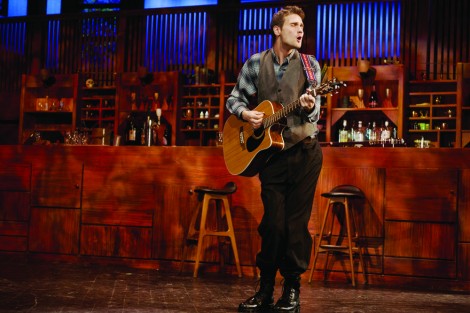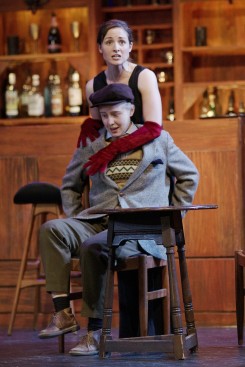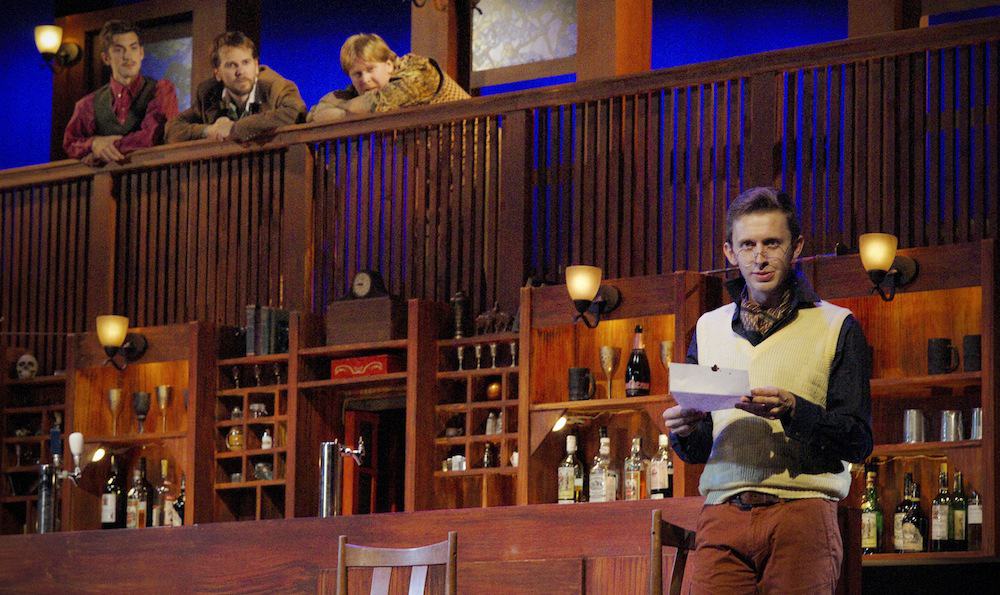Twelfth Night was the second Hart House Theatre production of the year, the classical Shakespearean story of a love dodecahedron.
In this play, directed by Matthew Gorman, we find Viola (Darcy Gerhart), a shipwreck survivor, disguised as the servant Cesario, in the service of the influential nobleman, Duke Orsino. Herein, we develop a very amusing set of love triangles that leads the play onward through a series of very enjoyable flirts, fights, pranks, and promises.

PHOTO COURTESY OF HART HOUSE
This play is character-heavy and features an impressive set. The tavern stands as the main setting for most of the play, and is cleverly used in various lighting in order to appear ominous or inviting.
The director made use of heavily caricatured characters in an effort to translate Shakespeare’s wit for the modern audience. However, this took away from the audience’s overall enjoyment of the play: for example, the superfluous flamboyance displayed by Malvolio and Sir Aguecheek came off as childishly offensive, and served no dramatic purpose other than mockery.

PHOTO COURTESY OF HART HOUSE
Twelfth Night presented a group of actors with a very large spectrum of talent: some actors impeccably embodied the characters they played. David Tripp’s portrayal of Sir Toby Belch was full of vim. The arrogance of his character was well-interpreted and energetically displayed. The chemistry between Tripp, Christopher Manousos (Sir Andrew Aguecheek), Alison Blair (Maria), and Leete Stetson (Fabian), was solid and heart-warmingly amusing — the actors played very well of each other, and their energy transmitted itself contagiously into the audience.
The choice of live musical accompaniment was a poor one, as the music often drowned out the lyrics. The witty fool Feste’s (Alexander Offord) musical abilities were pleasant to all the senses. However, the character’s classic music became an independent demonstration of Offord’s musical talent, accompanied by interludes of modern music. These interludes served little to support the play’s theme, tempo, or timbre, giving the impression that Offord was cast more for his musical abilities than his acting skills.
In the end, the play fails to deliver anything more grand than a light-hearted, family entertainment. Although certain theatrical strategies were outstanding, they were mostly undermined by the caricatured characters. The directing, acting, and design all come together to form a mildly entertaining play, but fall short of the expectations from a Hart House production.
Twelfth Night is at the Hart House Theatre until Nov. 23, 2013. For more info, click here.


